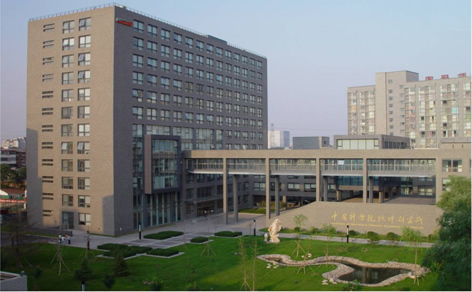During our ISCAS Summer Camp, you can have appointments with partners of our joint institute, by registering and applying here.
- Holger Hermanns offers interviews and discussion options on Friday, July 12, 2019.
- Gerard Pons-Moll offers interviews and discussion options on Thursday, July 11, 2019.
- Andreas Zeller offers interviews and discussion options on Monday, July 15, 2019.
Background: ISCAS is going to hold a summer camp in Beijing during 8th to 12th, July. The summer camp has been held successfully for 6 years, aiming at providing opportunities for college students to know about scientific research in ISCAS by means of giving special talks on research, offering visiting tours and communication chances directly with researchers. The outstanding participants will get a chance to start a master/PhD degree in ISCAS exempt from the national postgraduate entrance examination.

See the ISCAS’s Summer Camp page to get more information about participation (in simplified Chinese).
During the summer camp, you have the opportunity to attend talks given by two prominent partners of our joint institute.
Prof. Holger Hermanns, Saarland University
Launch your future at Saarland Informatics Campus
This talk starts off by presenting an overview of SIC, the Saarland Informatics Campus. SIC is embarking on a brandnew joint academic carreer programme together with ISCAS. SIC spans 6 world-reknown research institutes, among them the Max Planck Institutes for Informatics and for Software Systems, all co-located on one campus at Saarland University in Saarbrücken, Germany. About 2000 students and 350 doctoral candidates from over 80 nations are enrolled at SIC, enjoying high quality of life and diverse culture and nature. The numerous world-class scientists, the talented junior staff, the lively collaboration and the extraordinary range of research topics make SIC a unique talent incubator for computing science in the heart of Europe.
The talk will provide insights into a set of achievements recently established at SIC, including astonishing results that bridge from foundational computing theory to the practice of satellite maneouvring in low-earth orbit. I will discuss how optimal reachability analysis in priced timed automata is being combined with stochastic battery kinetics to best exploit a satellite’s operational capabilities in orbit, how this is rolled out in a concrete space mission, and how it can be extended to upcoming space constellations encompassing dozens to hundreds of communicating satellites.
Prof. Gerard Pons-Moll, Max Plank Institute for Informatics
Research at the Max Planck Institute for Informatics
In this talk, I will give an overview of the research areas and opportunities at the Max Planck Informatics. Nowadays, we are experiencing a digital revolution with a fast growing pace of digital content being generated. Big data, deep learning and artificial intelligence are part of our every day lives.
The MPI is devoted to cutting-edge research to formalise the principles of computational methods to understand and extract information from unstructured digital content. We conduct fundamental research on several areas including machine learning, computer vision, computer graphics, geometric computation, program verification, databases and information systems, computationally biology, algorithms and complexity and programming logics.
As a motivating example of our research, I will also describe in more detail one of our projects to digitise humans using machine learning, computer vision and computer graphics techniques — turning plain videos of people into full 3D digital human models, which can be further edited and controlled for a variety of applications such as VR/AR, gaming and entertainment or 3D teleconferencing.